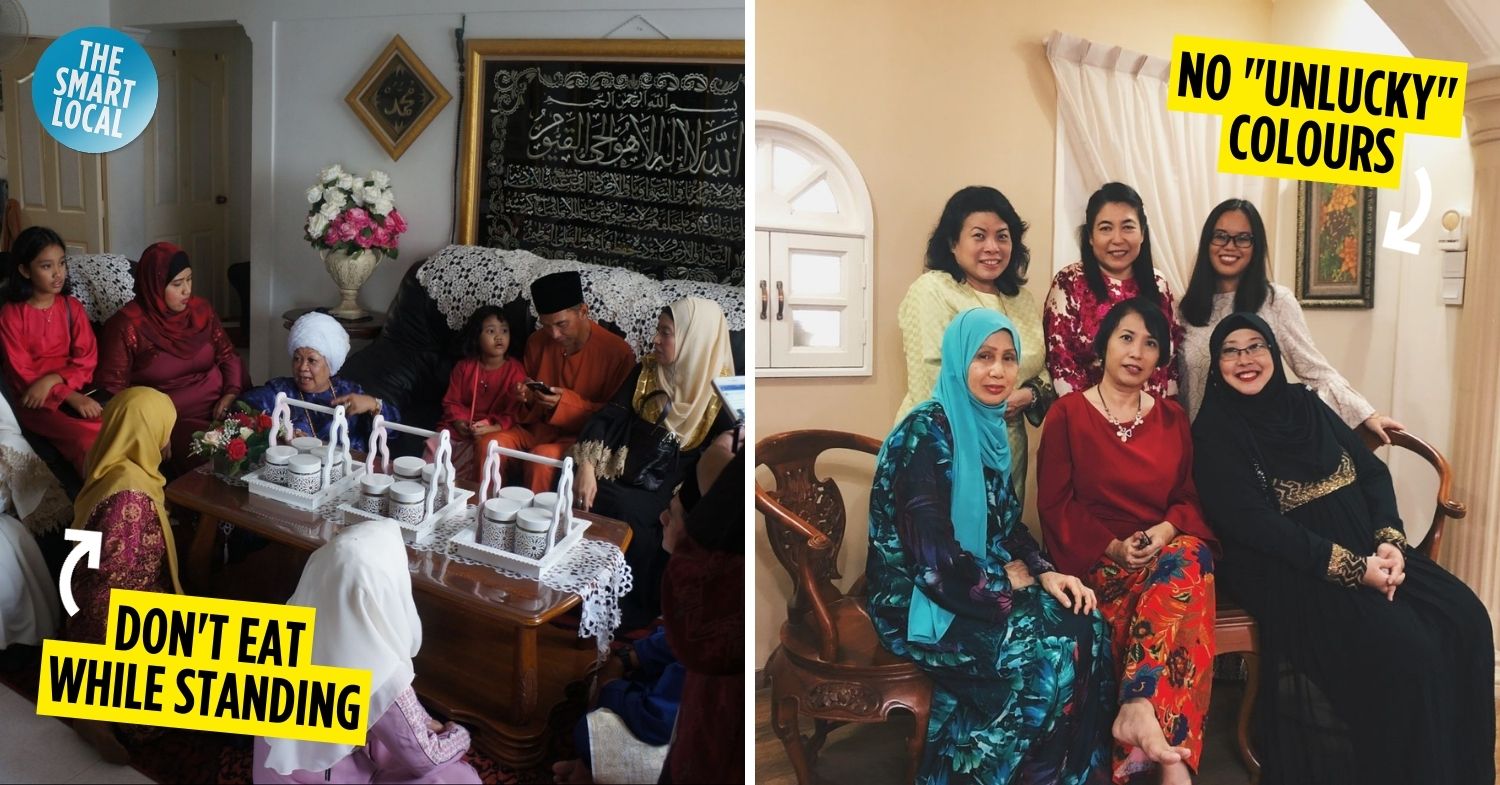Tips for Hari Raya in Singapore
Hari Raya Puasa has arrived, and some of us might have been invited over to our friends’ homes to join in the festivities. But those of us who aren’t too familiar with the customs behind this joyous occasion might be feeling rather clueless about the practices when visiting, or even engaging with family members.
We talked to our Muslim friends to learn more about some dos and don’ts during Hari Raya visiting, and the reasons behind them.
When is Hari Raya Puasa & Hari Raya Haji in 2024?
Hari Raya Puasa, or Eid al-Fitr, refers to the Festival of Breaking The Fast. This marks the end of Ramadan, and shouldn’t be confused with Eid al-Adha – or more commonly known in Singapore as Hari Raya Haji – the Festival of Sacrifice.
The dates for these events are based on the Islamic calendar, which states that a year is only 354 or 355 days, depending on the year. Hari Raya Puasa is celebrated on the 1st day of Syawal, which is the 10th month. So according to this, Hari Raya Puasa falls on 10th April 2024.
Hari Raya Haji is a more solemn event, where Muslims will self-reflect on their sins and cleanse their souls. This happens on the 10th day of Zulhijjah, which is the 12th month of the Islamic calendar. This means that Hari Raya Haji will happen on 17th June 2024.
1. What is Hari Raya & why is it celebrated?
Non-Muslims might only know of Hari Raya as a celebration to mark the end of Ramadan. But it goes beyond just family gatherings and delicious food – it’s a time to commemorate reconciliation. As a general custom, families will ask for forgiveness before and during house visits.
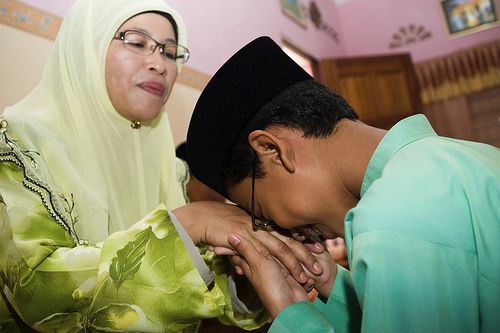
Image credit: Honour.sg
Before leaving, guests can depart with a simple “Selamat Hari Raya, maaf zahir dan batin.” This roughly translates to “Do forgive any wrongdoings I may have done, spiritually or physically.”
Though it may seem silly to say this to someone you may have just met, this can be said out of courtesy and respect to your hosts too.
Here are some other useful phrases to greet your Muslim friends with:
- Eid Mubarak: Arabic for “blessed celebration.”
- Selamat Hari Raya Aidilfitri (or Eid al-Fitr): Reinforces the idea that it’s the Festival of Breaking The Fast. Be careful not to confuse this with “Selamat Hari Raya Eid al-Adha” which is used for a different holiday!
2. What are some dining etiquettes to note?
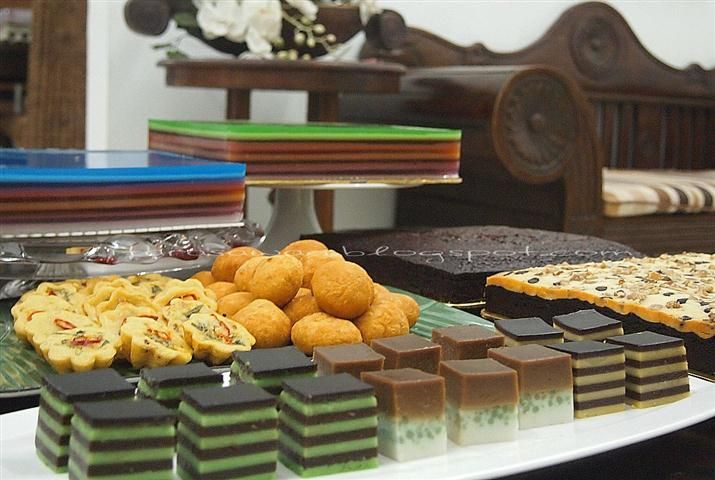
Image credit: Citarasawan
As tempting as it may be, try not to wipe out the entire tray of yummy kuih muih – at least not before you invite your host to eat. As a form of basic courtesy, guests can use the phrase “jemput makan”, which means “let’s eat together”.
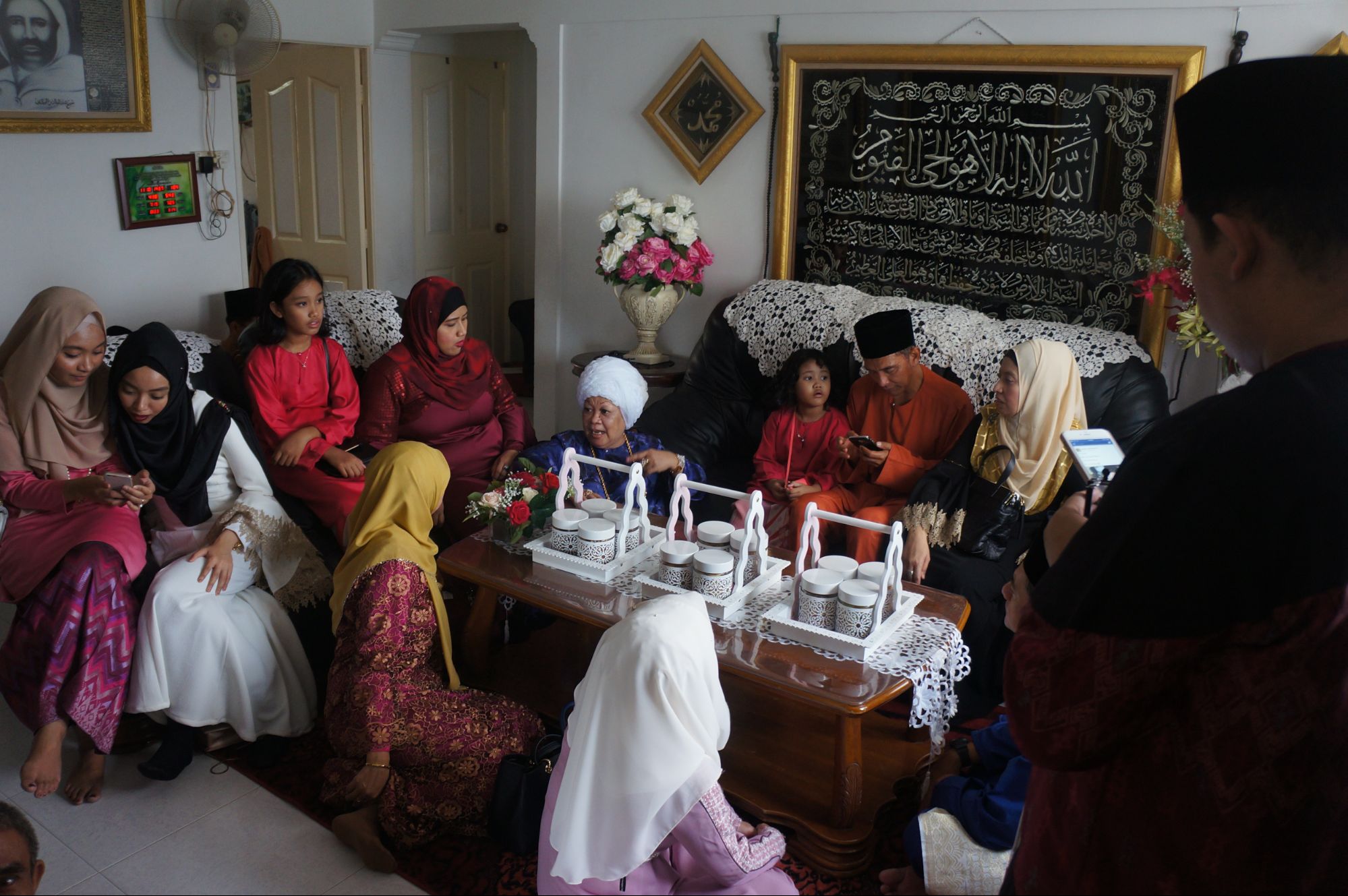 Image for illustrative purposes only.
Image for illustrative purposes only.
Image credit: Muhammad Amirul
It’s also important to not eat or drink while standing up. If you’ve entered a house where all chairs happen to be occupied, it’s fine to sit on the floor too. And if you decide to eat with your hands, remember to use your right hand, as the left is considered “unclean”.
Of course, do be mindful of hygiene – use serving spoons for dishes and avoid sharing items if you’re unwell.
3. Can opposite genders shake hands?
Mingling between opposite genders is something visitors should be mindful of, as some households might be stricter than others. For example, guys need not shake hands with female figures of the house – a simple “hello makcik” would do. Alternatively, you can also practice the “Salam Mufti”, a greeting where one places their hand close to their heart.
But when in doubt, just smile and wave.
4. Who is required to give out green packets?
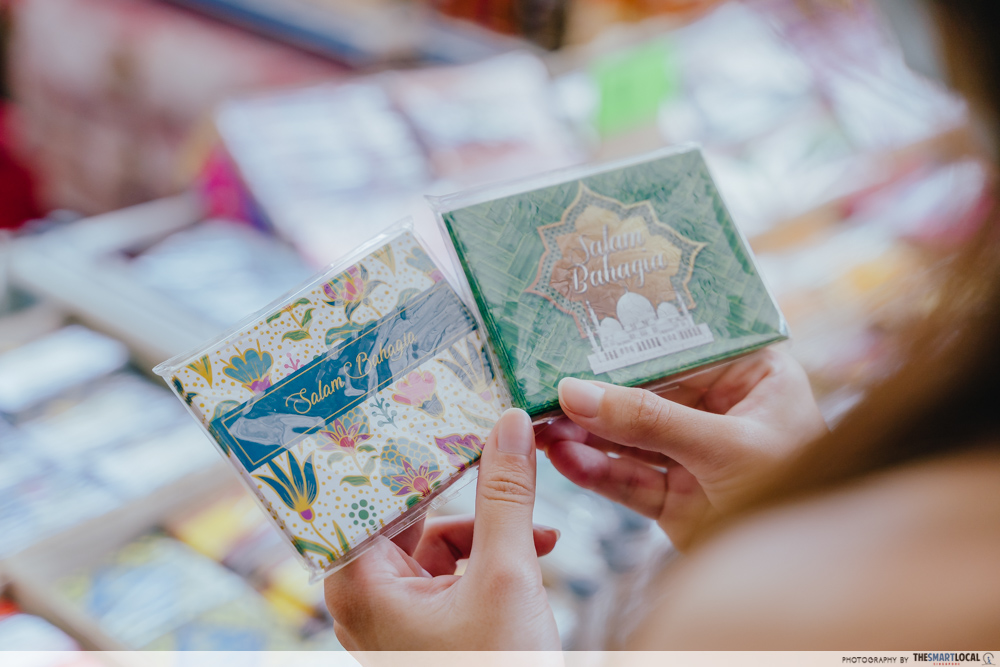
While guests are not expected to give out green packets (or Duit Raya) during visiting, you are completely welcome to do so, especially when there are young children present, and if you’re already working. Green packets can also be given to the elders of the house as a form of respect.
Ramadan bazaars are a great place to get green packets in bundles for cheap – go for ones with unique designs that’ll add a nice touch to your gesture. And if you receive one, remember to accept them with both hands. You can even take things online with e-Duit Raya via online banking services too.
5. Are there any rules on gifting?
Likewise, there aren’t any strict rules on gifting either. Though it’s fine to not bring any gifts when visiting, it wouldn’t be great to turn up to your host’s home empty-handed. A safe bet would be a box of halal pastries, cakes, or kueh – plus, it’s something everyone can enjoy too. But if you want to be the best guest ever, try out these simple kueh recipes at home.
6. What is the dress code for Hari Raya?
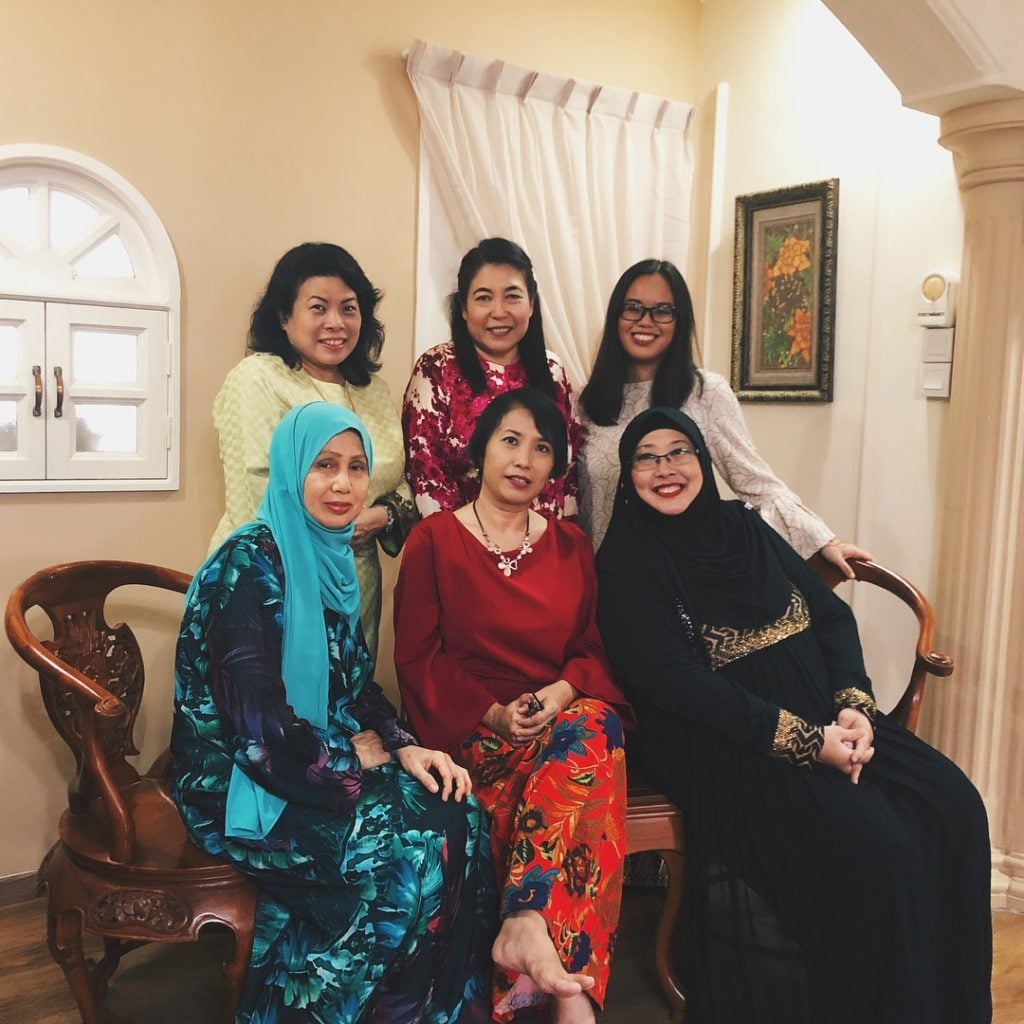
Image for illustrative purposes only.
Image credit: @farzanarama via Instagram
Other than feasting on dishes like rendang and lontong prepared by lovely neighbours, another fun aspect of Hari Raya is seeing families out and about in their matching outfits.
There isn’t actually a dress code to follow, in fact, visitors don’t need to wear baju kurung or other traditional clothes – though it’ll be extra special to do so! However, it’s important to dress modestly, so avoid short skirts or overly revealing necklines.
There aren’t any especially auspicious or taboo colours either, so feel free to wear any colour your heart desires.
Learning more about Hari Raya
We hope that this guide has been able to shed more light on the traditions of Hari Raya. Regardless of whether we celebrate it or not, learning about different cultures is always important – especially in a multicultural society like our own.
And to all our Muslim readers, Selamat Hari Raya Aidilfitri from us.
More fun culture reads:
Cover image adapted from: Muhammad Amirul, @farzanarama via Instagram
Originally published on 23rd July 2017. Last updated by Joycelyn Yeow on 4th April 2024.
